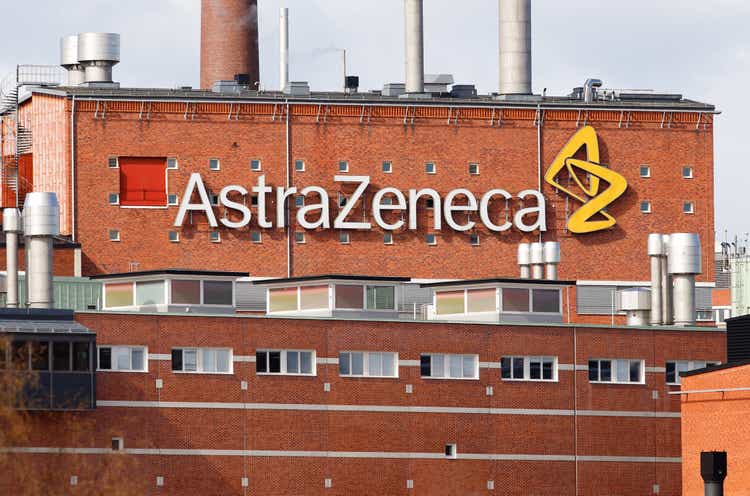AstraZeneca Tagrisso chemo combo cuts risk of lung cancer progression in trial

Roland Magnusson/iStock Editorial via Getty Images
AstraZeneca (NASDAQ:AZN) said Tagrisso plus chemotherapy helped improve progression-free survival (PFS) in patients with a type of non-small cell lung cancer (NSCLC) in a phase 3 trial.
The late-stage study, dubbed FLAURA2, enrolled 586 patients with locally advanced (Stage 3B-3C) or metastatic (Stage 4) epidermal growth factor receptor-mutated (EGFRm) NSCLC.
The British pharma giant said Tagrisso (osimertinib) in combination with chemotherapy showed a statistically significant and clinically meaningful improvement in PFS, compared to Tagrisso alone.
PFS is the length of time during/after treatment a patient lives without the disease getting worse.
The company noted that at the time of analysis overall survival (OS) data were immature and will be evaluated at another analysis.
"These significant FLAURA2 results show Tagrisso has the potential to offer patients in the first-line setting a new treatment option that can extend the time they live without their disease progressing. This meaningfully builds on successive trials which have demonstrated improved clinical benefit with Tagrisso in patients with EGFR-mutated lung cancer," said Susan Galbraith, executive vice president, Oncology R&D, AstraZeneca.
Safety results and discontinuation rates due to adverse events were consistent with the profiles of each drug, according to the company.
In March, AstraZeneca reported results from a phase 3 trial called ADAURA which showed Tagrisso helped improve overall survival in patients with early-stage EGFRm NSCLC following complete tumor resection.